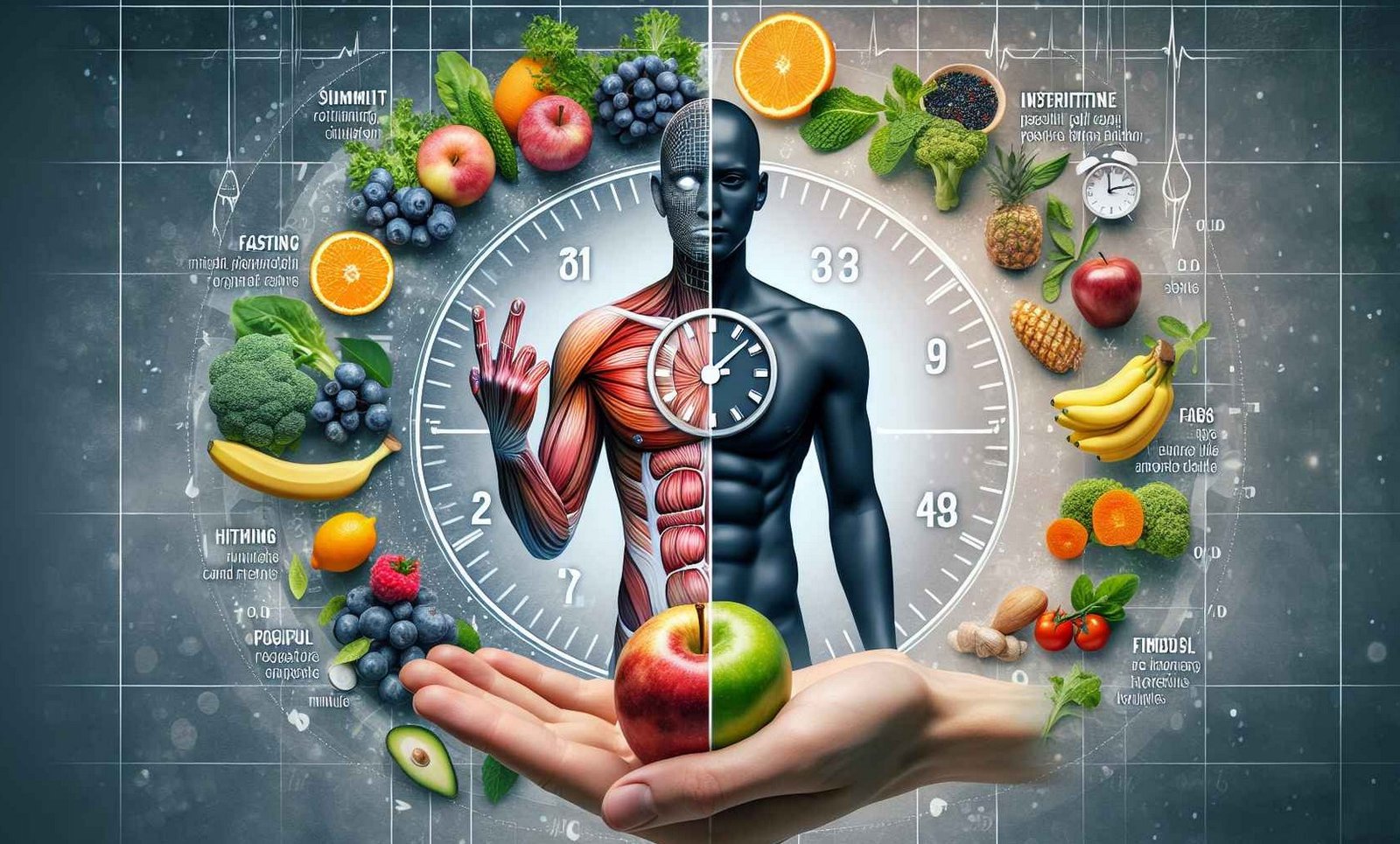
When it comes to achieving a healthier lifestyle, controlling your diet plays a crucial role. Making conscious choices about what you eat can have a significant impact on your overall well-being. Whether your goal is to lose weight, improve your energy levels, or simply feel better, here are some suggestions and advice for healthier eating.
Eat a Balanced Diet
A balanced diet is the foundation of good health. It is essential to include a variety of nutrient-rich foods in your meals. Aim to incorporate fruits, vegetables, whole grains, lean proteins, and healthy fats into your daily diet.
Fill your plate with colorful fruits and vegetables that are packed with vitamins, minerals, and antioxidants. These nutrients provide essential support for your immune system and help protect your body against various diseases.
Include whole grains such as brown rice, quinoa, and whole wheat bread in your meals. These complex carbohydrates provide a steady source of energy and are rich in fiber, aiding digestion and promoting a feeling of fullness.
Choose lean proteins like chicken, fish, beans, and tofu. These protein sources are low in saturated fats and provide essential amino acids for muscle growth and repair.
Don’t forget to include healthy fats in your diet, such as avocados, nuts, and olive oil. These fats are beneficial for heart health and help your body absorb fat-soluble vitamins.
Control Portion Sizes
Controlling portion sizes is key to maintaining a healthy weight. It’s easy to overeat when faced with large portions, leading to excess calorie intake. Practice mindful eating by listening to your body’s hunger and fullness cues.
Use smaller plates and bowls to help control portion sizes. This visual trick can make your meal feel more satisfying, even with smaller amounts of food.
Avoid eating straight from the package. Instead, portion out your food onto a plate or bowl. This helps you be more aware of how much you are consuming and prevents mindless snacking.
Controlling food portions is an important strategy for maintaining a balanced diet and avoiding overconsumption of calories. Here are some tips to help control portions:
-
Use Smaller Plates: Opt for smaller plates, as they can make portions appear larger, tricking visual perception and helping reduce the amount of food consumed.
-
Serve Moderate Portions: When serving yourself, start with smaller portions, and if still hungry, you can always go back for more. Avoid filling your plate completely at the outset.
-
Practice Mindful Eating: Eat slowly and pay attention to feelings of satiety. Take the time to savor each bite, and this can help prevent overeating.
-
Divide Into Smaller Portions: If eating at a restaurant or preparing meals, divide larger portions into smaller ones before starting to eat.
-
Use Smaller Containers: When storing leftovers or packing snacks to take with you, choose smaller containers. This helps prevent oversized portions.
-
Learn Recommended Servings: Familiarize yourself with recommended servings for different food groups. This can provide a clearer idea of appropriate portion sizes.
-
Avoid Eating Straight from Packaging: Serving food onto plates instead of eating directly from packaging can help provide a better sense of how much is being consumed.
-
Use Your Hand as a Guide: A simple approach is to use your hand as a guide. For instance, a serving of protein can be approximately the size of your palm.
-
Pay Attention to Satiety Signals: Stop eating when you feel satisfied, not when you are completely full. This allows your body time to register the feeling of fullness.
-
Plan Your Meals: Planning meals in advance can help avoid impulsive choices and ensure that portions are balanced.
Remember that portion control is an essential part of a healthy lifestyle, and it is always advisable to seek guidance from healthcare professionals, such as nutritionists, for personalized advice and support in establishing healthy eating habits.
Stay Hydrated
Drinking enough water is essential for overall health and can also help control your appetite. Often, feelings of hunger can be mistaken for thirst. Stay hydrated throughout the day to prevent unnecessary snacking.
Swap sugary drinks like soda and fruit juices for water or herbal tea. These beverages are calorie-free and can help satisfy your thirst without adding extra calories.
Hydration plays a fundamental role in the weight loss process for several reasons. Firstly, water is a crucial ally in appetite control, as thirst is often mistaken for hunger. Drinking water before meals can provide a sense of fullness, leading to more moderate food intake. Additionally, replacing caloric beverages with water contributes to a reduction in overall calorie consumption, as water is a low-calorie option that does not add unnecessary calories to the diet.
In addition to calorie control, proper hydration boosts metabolism by temporarily increasing the rate of calorie burning through a phenomenon known as water-induced thermogenesis. This metabolic process can aid in weight loss, especially when combined with a balanced diet and regular exercise. Water also plays a crucial role in eliminating toxins and waste from the body, supports the efficient filtration function of the kidneys, and contributes to preventing fluid retention, assisting in achieving more effective and lasting results in the weight loss journey.
Plan and Prepare Meals
Planning and preparing your meals in advance can make it easier to stick to a healthy eating plan. When you have nutritious meals readily available, you are less likely to reach for unhealthy options or order takeout.
Set aside time each week to plan your meals and create a shopping list. Choose recipes that include a balance of protein, vegetables, and whole grains. Preparing meals in bulk and portioning them out can save time and ensure you have healthy options on hand.
Planning your meals is an effective strategy to ensure a healthy and balanced diet throughout the day. Here are some steps you can follow to plan your meals:
-
Set Goals and Nutritional Needs: Consider your health goals, nutritional needs, and food preferences. This may include the amount of calories, proteins, fats, carbohydrates, vitamins, and minerals you want to consume.
-
Create a Weekly Menu: Develop a weekly menu that includes breakfast, lunch, dinner, and snacks. Planning in advance helps avoid impulsive choices and ensures variety in your meals.
-
Include a Variety of Foods: Make sure to include a variety of foods in each meal to ensure a balanced intake of nutrients. This may involve lean proteins, whole grains, fruits, vegetables, and healthy fats.
-
Consider Portion Size and Meal Frequency: Think about portion sizes and the frequency of meals throughout the day. Eating smaller portions more frequently can help maintain energy levels and prevent excessive hunger.
-
Plan Healthy Snacks: Plan healthy snacks between main meals to help control hunger and maintain stable energy levels. Good options include fruits, yogurt, nuts, or vegetables with hummus.
-
Anticipate Healthy Grocery Shopping: Based on your weekly menu, create a shopping list. This helps avoid impulsive purchases and ensures you have the right ingredients for your meals.
-
Prep Meals in Advance: If possible, set aside time to prepare meals or ingredients in advance. This saves time during the week and makes it easier to make healthy food choices.
-
Be Mindful of Meal Timing: Consider the timing of your meals and snacks throughout the day. Eating at regular intervals can help regulate hunger and energy levels.
-
Accommodate Specific Dietary Needs: Take into account any specific dietary needs, such as food restrictions, allergies, or personal preferences. This is important to ensure your meals align with your individual requirements.
-
Experiment with Cooking Methods: Try different cooking methods to maintain variety and interest in your meals. Cooking, grilling, baking, and incorporating raw foods are options that can add diversity to your menu.
-
Stay Hydrated: Remember to include an adequate amount of water in your meal planning. Proper hydration is crucial for overall health.
Adapting meal planning to your individual needs and adjusting it as necessary over time is a flexible and sustainable approach to healthy eating.
Use Supplements Wisely
While a balanced diet should provide most of the nutrients your body needs, some people may benefit from supplements. However, it is important to use supplements wisely and consult with a healthcare professional before starting any new regimen.
If you are looking for faster weight loss results, certain supplements may help support your goals. One supplement worth considering is green tea. Green tea contains antioxidants and compounds that can help boost metabolism and reduce appetite. However, it is important to note that supplements should not be relied upon as a sole method for weight loss.
For those interested in exploring weight loss supplements, Puravive is a product that claims to aid in faster weight loss results. It is always recommended to do thorough research and consult with a healthcare professional before incorporating any supplements into your routine. You can find more information about Puravive and its potential benefits here.
Conclusion
Controlling your diet is a powerful tool for achieving a healthier lifestyle. By following a balanced diet, controlling portion sizes, staying hydrated, and planning and preparing your meals, you can make significant strides towards your health and wellness goals. Remember to always prioritize whole, nutrient-rich foods and consult with a healthcare professional before incorporating any supplements into your routine.












One Response